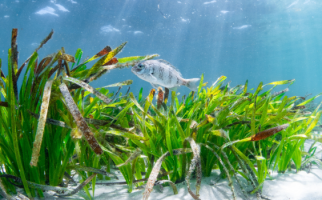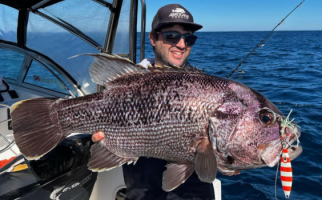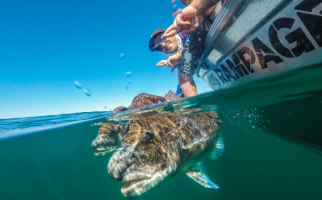As the dust settles on the new fishing rules for west coast demersals, Recfishwest says the Government has got to get right the way $10 million of public money is spent on supporting the fishery.
The Government heralded the funding boost as part of the west coast demersal management changes package announced by Fisheries Minister Don Punch in December as “the biggest investment in the recovery of a fishery in WA history”.
To date, though there has been little detail provided of exactly how the money will be spent other than the following breakdown given to Recfishwest by DPIRD and given in question time in the WA parliament.
West coast demersal $10 million support package break-down
- Voluntary Fisheries Adjustment Scheme (VFAS) – $2.5 million
- Public education and awareness campaign – $1.75 million
- Science and monitoring – $1.8 million
- Statewide FADs – $1.5 million
- Snapper restocking – $1 million
- Digital catch reporting for recreational fishers – $674,000
- Charter tourism business diversification – $500,000
- Charter sector management reform – $260,000
Recfishwest believes it is crucial that the Government closely involves the recreational fishing community and industry in the design and delivery of the package.
Recfishwest CEO Dr Andrew Rowland said, “This is a significant amount of public money and the Government has got to get it right this time. Invested properly, this money can go a long way in redressing the fundamental inequity in the way this valuable public resource is managed.
“It can plug significant knowledge gaps that can inform much better management of the fishery and promote better fishing behaviours that can speed up the recovery and ultimately lead to optimising the social and economic benefits these fish provide for our community – this after all is the goal of fisheries management enshrined in WA law.”

Commercial buy-back scheme can pave the way for a better, fairer way
The VFAS commercial licence buy-back scheme earmarked for $2.5 million of the package will provide operators compensation to voluntarily reduce the number of commercial fishing units, Recfishwest understand this scheme is due to open this month.
Andrew said, “We are particularly keen to understand how the VFAS will work given it can potentially pave the way to a fairer and more equitable sharing of the overall sustainable catch between recreational, charter and commercial fishing sectors.
“This is long overdue with 64 per cent of the west coast demersal catch currently reserved for private profit and only five per cent of demersal fish caught in WA waters taken by recreational fishers. It’s about how the maximum amount of social and economic benefits can be attained from the sustainable catch for the Western Australian community.
“That means giving back mums, dads, families and friends more time back out on the water with the chance to catch a quality bottom fish for dinner.”

Better knowledge, better fishery management
Other elements of the support package including the science and monitoring, and digital catch reporting investment can help plug some of the knowledge gaps scientists and fishery managers have around west coast demersal scalefish.
Examples of these are around to what extent the recovering Gascoyne pink snapper stock underpins numbers of those fish in the north of the west coast bioregion and how climate change might be impacting on spatial movement of the west coast demersal stock overall.
“Combined with clearer recreational catch data, better scientific understanding of dhufish, pink snapper and other prized demersals will help DPIRD fishery managers make better and more informed management decisions when the latest west coast stock assessment is due next year,” said Andrew.
“A comprehensive education and awareness campaign can also have a positive impact on fisher behaviour, reducing post-release mortality, spreading fishing effort away from west coast demersal species and ultimately speeding up the recovery. This campaign needs to involve fishers as well as charter operators and tackle stores who talk to fishers every single day.

Concerns for the charter fishing sector
“The charter fishing sector has been neglected in the new management package putting significant pressure and risk on the $110 million the sector contributes to the economy every year and the 830 jobs it supports.
“Twenty tonnes of the available 375 tonnes is simply not in line with significant benefits this sector provides to the Western Australian public. There will be more to come from us on this in the coming weeks.”
Getting answers to questions that have to be asked
In our role advocating for the interests of the WA fishers, Recfishwest will continue to ask the questions of Government that need to be answered on how this money is invested and how a fairer more equitable way to manage the fishery can established in the future.
“Make no mistake, this is a golden opportunity to set things right,” said Andrew, “But it has to be done right and it has to be done transparently – it’s simply too important a chance to squander.”
